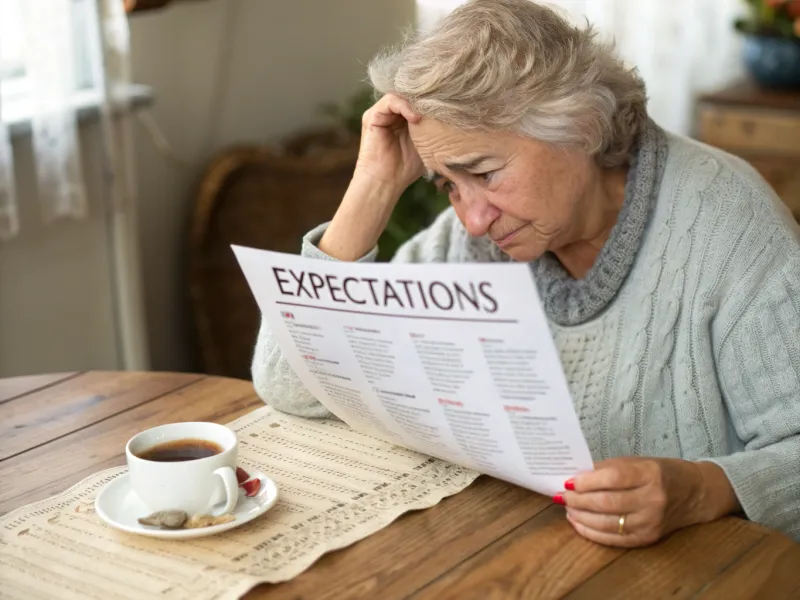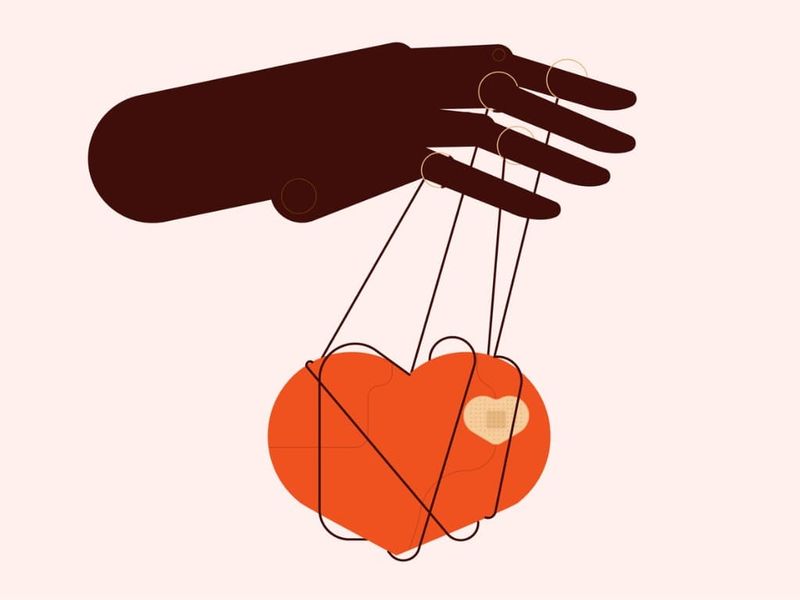33 Alarming Signs It’s Attachment, Not Love, That You’re Feeling
Have you ever found yourself questioning the authenticity of your emotions, wondering if what you feel is truly love or just an intense form of attachment?
In our intricate dance with relationships, the lines between genuine affection and dependency can blur, leaving us to ponder the true nature of our feelings.
This journey to understanding begins with acknowledging the subtle yet profound differences between attachment and love, where one confines and the other liberates.
I’ve made a list of 33 signs that may indicate you’re entangled in attachment rather than experiencing true love. Each sign is a window into the emotional patterns that shape our connections, encouraging reflection and empowering transformation toward healthier, more fulfilling relationships.
1. Fear of Being Alone

You find yourself overwhelmed by an unsettling fear at the mere thought of being alone. This fear creeps into your thoughts, whispering doubts and questioning your worth without someone by your side. It’s as if the presence of a partner validates your existence, offering a sense of completeness you worry you can’t find within yourself.
This fear is not love; it’s a sign of attachment, stemming from an internal void that clings to another as a source of comfort. True love thrives on individuality and independence, celebrating two whole people choosing to share their lives. When fear dictates your need for companionship, it shackles you to dependency.
Reflecting on this fear, ask yourself whether you’re running from solitude or genuinely desiring connection. Embrace the possibility of standing strong on your own, where love becomes a choice, not a necessity born from fear.
To move forward, consider spending intentional time alone, discovering what truly brings you joy. As you nurture self-love and acceptance, the grip of fear loosens, paving the way for relationships built on mutual respect and genuine affection.
2. Mistaking Possessiveness for Care

You’ve convinced yourself that possessiveness equates to care, that someone else’s need to “keep you close” is a sign of deep affection. But lurking within this possessive behavior is a need to control, to bind you to them through a facade of caring.
True love offers freedom within the relationship, allowing both individuals to blossom without fear of being stifled by another’s insecurities. Possessiveness, on the other hand, roots itself in attachment, where fear of loss manifests as a grip too tight to break.
When you mistake possessiveness for love, you sacrifice your autonomy, relinquishing your space in the name of feeling wanted. Instead, look for signs of trust and respect, where love is given wings, and each person’s individuality is cherished.
Challenge yourself to set boundaries, communicating openly about what feels comfortable and healthy. As you redefine what care means, you’ll open the door to relationships where love isn’t about holding tight but embracing openly with trust and understanding.
3. Staying Out of Habit

Routine has a way of settling into the crevices of our lives, wrapping us in a comfort that feels safe yet stagnant. Are you staying in a relationship out of habit, rather than genuine passion? This habit can be deceptive, masquerading as love when it’s merely a cycle of familiarity.
Attachment often finds its roots in routine, where the thought of change feels more terrifying than the absence of true connection. Love, however, is dynamic and vibrant, thriving on growth and shared adventures. When you find yourself in a relationship that feels more like a ritual, it might be time to assess your underlying motives.
Ask yourself if you’re choosing familiarity over fulfillment. Does the idea of starting anew fill you with dread, or is it the possibility of rediscovering passion that excites you? Challenge the status quo by exploring new experiences together, reigniting the spark that once drew you close.
In the end, love should invigorate, not sedate. Break free from the chains of habit, daring to seek a relationship that fuels your soul with excitement and genuine affection.
4. Prioritizing Your Partner’s Approval

There’s a silent power in seeking approval, a validation that can quickly become an addiction. When your happiness hinges on your partner’s approval, you’re stepping onto the shaky ground of attachment, not love.
In genuine love, self-worth is recognized independently of one’s partner. It’s about sharing life, not seeking permission to live it. Attachment, however, twists approval into a form of emotional currency, where your actions and feelings are dictated by another’s opinion.
The danger lies in losing sight of your own desires, sacrificing authenticity for the fleeting comfort of approval. To shift this pattern, focus on building a strong sense of self, where your worth is self-determined, not reliant on outside validation.
Encourage open dialogue with your partner, expressing your need for mutual respect and individuality. By fostering an environment where both partners are valued for their true selves, you’ll find a love that celebrates you for who you are, not who you’re expected to be.
5. Equating Drama with Passion

Drama has a tendency to disguise itself as passion, fooling us into believing that love is synonymous with intense emotions and tumultuous experiences. But this intensity often masks attachment, where conflict fuels a cycle of highs and lows.
True love is steady and nurturing, providing a haven from life’s chaos, not contributing to it. When drama becomes the norm, it drains emotional resources, leaving little room for genuine connection and understanding.
If you find yourself equating drama with love, consider whether this pattern is filling a void rather than fulfilling your heart. Seek relationships where communication, trust, and calmness prevail over constant upheaval.
By recognizing the difference between exhilarating passion and exhausting drama, you’ll open the opportunity for a relationship that’s enriching and supportive. Embrace love that soothes rather than one that agitates, allowing genuine passion to flourish in the absence of unnecessary conflict.
6. Feeling Incomplete Without Them

The notion of needing someone to “complete you” is romanticized but also misleading. When you feel incomplete without your partner, it speaks more to attachment than genuine love.
Love enhances what already exists within, celebrating two whole individuals choosing to share their lives. Attachment, conversely, stems from a belief that you lack something essential that only another can provide.
This mindset can lead to dependency, where your identity becomes intertwined with your partner’s, and your sense of self fades into the background. Instead, strive to cultivate a relationship where both partners stand as equals, embracing their individuality while cherishing their connection.
Reflect on your personal growth and strengths, recognizing the qualities that make you uniquely whole. As you nurture self-awareness and appreciation, you’ll find that love becomes a beautiful addition to your life, not a missing piece of your puzzle.
7. Ignoring Red Flags

Red flags are the cautionary whispers in our hearts, signaling that something isn’t quite right. Yet, when attachment takes hold, these warnings are often ignored, and dismissed in the name of love.
True love is built on respect, trust, and mutual understanding, where concerns are addressed openly, not brushed aside. Attachment, however, leads to blindness that can endanger emotional and sometimes physical well-being.
By overlooking red flags, you risk entrenching yourself deeper into a relationship that may not serve your highest good. Challenge yourself to confront these warnings with courage, seeking clarity and resolution.
Engage in honest conversations with your partner about your concerns, fostering a relationship where issues are faced together. In doing so, you create space for a love that’s rooted in authenticity and mutual growth, free from the shadows of ignored warning signs.
8. Sacrificing Personal Goals

In the throes of attachment, it’s easy to let go of personal dreams, believing that sacrificing them is an act of love. But true love doesn’t ask you to abandon your aspirations; it encourages and supports them.
When you find yourself consistently sidelining your goals for your partner’s needs, attachment has likely taken the reins. This sacrifice can lead to resentment, where unfulfilled ambitions become a source of tension.
Instead of viewing personal goals as a threat to the relationship, see them as opportunities for growth that can enrich your partnership. Collaborate with your partner to support each other’s dreams, creating a dynamic where both can thrive.
By aligning your individual aspirations with your shared life, you’ll cultivate a relationship that’s both fulfilling and inspiring. Remember, love should be an ally to your dreams, not an obstacle.
9. Over-Reliance on Physical Affection

Physical affection is a beautiful expression of love, yet over-reliance on it may signal attachment rather than genuine connection. When physical touch becomes the primary or sole source of emotional fulfillment, attachment may be the driving force.
True love balances physical affection with emotional intimacy, where words and actions build a foundation of trust and understanding. Attachment, however, clings to the physical as a means to fill emotional voids.
Evaluate whether your need for physical closeness stems from love or fear of losing connection. Develop emotional bonds that transcend touch, fostering a relationship where both heart and mind feel engaged.
Encourage open communication about desires and boundaries, ensuring that physical affection is a shared experience enriched by emotional depth. By nurturing both physical and emotional aspects, you’ll discover a love that feels whole and unwavering.
10. Jealousy Over Innocent Interactions

Jealousy can be a natural emotion, but when it arises from innocent interactions, it often points to attachment. This jealousy isn’t about love; it’s about fear—the fear of losing what you hold dear.
In a healthy relationship, trust acts as the bedrock, where interactions outside the partnership are met with confidence, not suspicion. Attachment, however, breeds insecurity, where jealousy clouds judgment and fosters tension.
Recognize whether your jealousy is unfounded, prompting self-reflection on underlying fears and insecurities. Engage in honest discussions with your partner, seeking reassurance and building trust.
By fostering an environment of openness and understanding, you can transform jealousy into a catalyst for growth, strengthening the bond through trust and communication rather than fear and doubt.
11. Constant Need for Reassurance

The constant need for reassurance is a hallmark of attachment, where love is overshadowed by insecurity. When you seek validation repeatedly, it suggests a lack of self-confidence and trust in the relationship’s foundation.
In true love, reassurance is an occasional comfort, not an incessant requirement. Attachment, however, creates a dependency on external affirmation, where your sense of worth hinges on another’s acknowledgment.
Reflect on why reassurance feels necessary, exploring personal insecurities and fears that may drive this need. Communicate openly with your partner, expressing your feelings while seeking mutual understanding.
By cultivating self-assurance and fostering a supportive partnership, you’ll lessen the grip of insecurity, allowing love to flourish without the constant demand for validation. Embrace a relationship where trust and self-belief stand as its pillars.
12. Feeling Responsible for Their Happiness

Believing you’re responsible for your partner’s happiness is a weighty misconception rooted in attachment. While love inspires support and joy, it doesn’t demand you bear the burden of another’s emotional well-being.
True love encourages individual happiness, where both partners contribute to each other’s joy without sacrificing personal contentment. Attachment, however, binds you to the idea that your partner’s mood is solely your responsibility.
This belief can lead to emotional exhaustion, as you continuously strive to meet an unattainable standard. Instead, recognize that happiness is a shared journey, where both individuals take responsibility for their emotional health.
Encourage open communication about needs and expectations, ensuring that the relationship fosters mutual support rather than dependency. By embracing a balance of shared and personal happiness, you’ll cultivate a love that’s both liberating and fulfilling.
13. Avoiding Conflict at All Costs

Avoidance of conflict may seem like a peaceful approach, but when driven by attachment, it leads to unaddressed issues and growing resentment. True love doesn’t shy away from conflict; it embraces it as an opportunity for growth and understanding.
Attachment fuels fear of confrontation, where the risk of discord seems too great a threat to the relationship’s stability. This avoidance creates a facade of harmony, leaving underlying problems to fester.
Challenge yourself to address conflicts with honesty and compassion, viewing them as a path to deeper connection. Engage in open dialogue, expressing feelings and seeking resolutions that honor both partners’ perspectives.
By transforming fear of conflict into a tool for mutual growth, you’ll cultivate a relationship where love thrives on authenticity and courage, not avoidance and suppression.
14. Feeling Trapped by the Relationship

A relationship should feel like a sanctuary, not a cage. When you feel trapped, it’s often a sign of attachment, where fear and obligation overshadow genuine love.
True love offers freedom within commitment, allowing both partners to grow and explore without feeling confined. Attachment, however, breeds a sense of entrapment, where the relationship feels like a shackle rather than a choice.
Reflect on why you feel trapped, exploring whether it’s a fear of change or a dependency on the relationship itself. Communicate with your partner about your feelings, seeking solutions that enhance both partners’ sense of freedom and fulfillment.
By embracing the liberating nature of true love, you’ll discover a relationship where commitment feels empowering, not restrictive, and where both partners thrive in their shared journey.
15. Compromising Core Values

Compromising on core values is a profound sacrifice often rooted in attachment. When you find yourself bending your principles to fit a relationship, love is overshadowed by the need to conform.
True love respects and honors individual values, creating a partnership where differences are embraced and celebrated. Attachment, however, pressures you to mold yourself to meet another’s expectations, eroding your sense of self in the process.
Reflect on the values that define you, recognizing their importance in your life and relationships. Engage in open discussions with your partner about aligning values, and seeking common ground without sacrificing individuality.
By standing firm in your beliefs, while fostering mutual respect, you’ll cultivate a relationship where love flourishes on a foundation of authenticity and shared principles.
16. Losing Interest Outside the Relationship

When attachment takes hold, interests outside the relationship often wane, leaving you isolated from activities and connections that once brought joy. Love, on the other hand, encourages a rich tapestry of experiences beyond the partnership.
Attachment narrows focus to the relationship itself, where outside interests become secondary or neglected. This shift can lead to a loss of personal identity, where your world revolves solely around your partner.
Reflect on the hobbies and friendships that once enriched your life, considering how they can coexist with your relationship. Reengage with these interests, balancing time spent with your partner and pursuits that fulfill you.
By nurturing a diverse range of experiences, you’ll cultivate a relationship that complements your life rather than consuming it. Embrace a love that supports and encourages exploration beyond the boundaries of the partnership.
17. Feeling the Need to Change Them

Believing you need to change your partner is a clear sign of attachment, not love. Love accepts and cherishes the person as they are, while attachment fixates on altering them to fit an ideal.
Attachment stems from dissatisfaction and control, where your partner’s qualities become projects rather than gifts. This mindset creates tension and frustration, as the demand for change overshadows appreciation.
Reflect on the aspects of your partner that drew you to them, acknowledging the beauty in their uniqueness. Engage in conversations that celebrate differences and foster growth without demanding transformation.
By embracing your partner’s true self, you’ll cultivate a relationship where love thrives on acceptance and encouragement, free from the burden of change.
18. Neglecting Self-Care

In the throes of attachment, self-care often becomes a forgotten priority, overshadowed by the demands of the relationship. True love, however, values self-care as an essential component of a healthy partnership.
Attachment drives you to place your partner’s needs above your own, leading to burnout and neglect of personal well-being. This imbalance creates resentment and diminishes your capacity to nurture the relationship.
Reflect on the importance of self-care, recognizing its role in sustaining both personal and relational health. Prioritize activities that rejuvenate and fulfill you, fostering a balance between your needs and those of the partnership.
By embracing self-care as a shared value, you’ll cultivate a relationship where love thrives on mutual support and self-respect, enriching both partners’ lives.
19. Feeling Pressured to Conform

The pressure to conform within a relationship often signals attachment, where love is overshadowed by the need to fit a particular mold. True love embraces individuality, celebrating differences rather than stifling them.
Attachment fuels a desire to blend in, to meet expectations that may not align with your authentic self. This pressure creates tension and dissatisfaction, as you mold yourself to fit another’s vision.
Reflect on the aspects of yourself you may have compromised, recognizing the importance of authenticity in your relationships. Engage in open discussions with your partner, expressing your need for acceptance and individuality.
By fostering an environment where both partners are valued for their true selves, you’ll cultivate a relationship where love flourishes on a foundation of mutual respect and freedom.
20. Clinging to the Past

Clinging to the past is a common indicator of attachment, where love becomes tethered to what once was rather than what is. True love embraces the present, appreciating the journey while looking forward to shared futures.
Attachment roots itself in nostalgia, where memories overshadow current experiences and growth. This fixation can hinder the relationship’s ability to evolve and adapt to new challenges.
Reflect on the aspects of the past that you cherish, recognizing how they inform but do not define your present relationship. Engage in activities that celebrate both past and present, fostering a dynamic where love thrives on growth.
By balancing memories with newfound experiences, you’ll cultivate a relationship where love is both a journey and a destination, free from the confines of nostalgia.
21. Overanalyzing Their Words and Actions

Overanalyzing your partner’s words and actions is a sign of attachment, where love is overshadowed by insecurity and doubt. True love fosters trust and understanding, allowing room for imperfections without fear of misinterpretation.
Attachment breeds anxiety, where every interaction is scrutinized for hidden meanings or potential threats. This constant analysis can create tension and erode the foundation of trust within the relationship.
Reflect on the reasons behind your need to overanalyze, exploring underlying fears and insecurities that may drive this behavior. Communicate openly with your partner, seeking clarity and reassurance.
By embracing trust and open communication, you’ll transform overanalysis into a tool for growth, allowing love to flourish without the weight of doubt. Cultivate a relationship where love is grounded in faith and understanding.
22. Feeling Drained Rather Than Energized

A relationship should invigorate and inspire, not drain and exhaust. When you constantly feel depleted, it’s often a sign of attachment, where love is overshadowed by obligation and emotional burden.
True love uplifts and rejuvenates, creating a partnership that fuels passion and joy. Attachment, however, ties you to the weight of expectations, where your energy is consumed by fulfilling another’s needs.
Reflect on the aspects of the relationship that leave you feeling drained, exploring whether they stem from love or obligation. Communicate with your partner about creating a balanced dynamic that nurtures both individuals.
By fostering a relationship that prioritizes mutual support and energy, you’ll cultivate a love that energizes and enriches both partners’ lives, creating a shared journey that’s both fulfilling and empowering.
23. Constantly Comparing to Others

Constantly comparing your relationship to others is a sign of attachment, where love is overshadowed by insecurity and doubt. True love values the unique bond between partners, free from external comparisons.
Attachment breeds dissatisfaction, where the grass always seems greener elsewhere. This mindset can create tension and erode the foundation of trust within the relationship, as you measure your connection against unrealistic standards.
Reflect on the reasons behind your need to compare, exploring underlying fears and insecurities that may drive this behavior. Recognize the strengths of your relationship, celebrating the qualities that make it uniquely yours.
By embracing gratitude and appreciation, you’ll transform comparisons into a tool for growth, allowing love to flourish without the weight of envy. Cultivate a relationship where love is grounded in contentment and self-assurance.
24. Relying on Fantasy to Cope

Relying on fantasy to cope with relationship challenges is a sign of attachment, where love is overshadowed by idealized illusions. True love embraces reality, facing challenges with honesty and courage.
Attachment fuels escapism, where fantasies become a refuge from the complexities of the relationship. This reliance on fantasy can hinder growth and prevent the development of genuine connection.
Reflect on the reasons behind your need to escape, exploring the aspects of the relationship that feel unfulfilled. Communicate with your partner about addressing these challenges, seeking solutions that foster growth and understanding.
By embracing reality and fostering open communication, you’ll transform fantasy into a tool for growth, allowing love to flourish without the weight of illusion. Cultivate a relationship where love is grounded in authenticity and shared vision.
25. Feeling Anxious When Apart

Feeling anxious when apart from your partner is a sign of attachment, where love is overshadowed by insecurity and fear. True love values both togetherness and individuality, fostering a sense of security even when apart.
Attachment breeds anxiety, where distance feels like a threat to the relationship’s stability. This constant need for reassurance can create tension and erode the foundation of trust within the relationship.
Reflect on the reasons behind your need for constant proximity, exploring underlying fears and insecurities that may drive this behavior. Communicate with your partner about creating a balanced dynamic that nurtures both togetherness and independence.
By fostering a relationship that values both individuality and connection, you’ll cultivate a love that thrives on trust and mutual support, creating a shared journey that’s both fulfilling and empowering.
26. Feeling Guilty for Needing Space

Feeling guilty for needing space is a sign of attachment, where love is overshadowed by obligation and fear of conflict. True love respects the need for personal space, recognizing its role in nurturing both individual and relational health.
Attachment fuels guilt, where the desire for space feels like a betrayal or sign of weakness. This mindset can create tension and diminish your capacity to nurture the relationship, as you suppress your own needs.
Reflect on the importance of space, recognizing its role in sustaining both personal and relational health. Communicate with your partner about your needs, seeking solutions that honor both partners’ perspectives.
By fostering a relationship that respects personal space, you’ll cultivate a love that thrives on mutual support and understanding, creating a shared journey that’s both fulfilling and empowering.
27. Feeling Overwhelmed by Expectations

Feeling overwhelmed by expectations is a sign of attachment, where love is overshadowed by obligation and pressure. True love fosters mutual understanding and respect, recognizing each partner’s individuality and needs.
Attachment fuels pressure, where expectations feel like a burden rather than a shared responsibility. This mindset can create tension and diminish your capacity to nurture the relationship, as you feel trapped by obligation.
Reflect on the reasons behind your sense of overwhelm, exploring underlying fears and insecurities that may drive this behavior. Communicate with your partner about creating a balanced dynamic that honors both partners’ needs.
By fostering a relationship that values mutual understanding and respect, you’ll cultivate a love that thrives on authenticity and shared vision, creating a shared journey that’s both fulfilling and empowering.
28. Avoiding Emotional Vulnerability

Avoiding emotional vulnerability is a sign of attachment, where love is overshadowed by fear of rejection and judgment. True love embraces vulnerability, recognizing its role in building trust and connection.
Attachment fuels avoidance, where vulnerability feels like a risk rather than an opportunity for growth. This mindset can create tension and hinder the development of genuine connection, as you suppress your own emotions.
Reflect on the reasons behind your avoidance, exploring underlying fears and insecurities that may drive this behavior. Communicate with your partner about your feelings, seeking solutions that foster trust and understanding.
By embracing vulnerability and fostering open communication, you’ll cultivate a relationship where love thrives on authenticity and courage, creating a shared journey that’s both fulfilling and empowering.
29. Feeling Like You’re Settling

Feeling like you’re settling is a sign of attachment, where love is overshadowed by fear of change and uncertainty. True love inspires growth and fulfillment, recognizing each partner’s potential and dreams.
Attachment fuels complacency, where settling feels like a safe choice rather than a fulfilling one. This mindset can create tension and diminish your capacity to nurture the relationship, as you suppress your own aspirations.
Reflect on the reasons behind your sense of settling, exploring underlying fears and insecurities that may drive this behavior. Communicate with your partner about your dreams and aspirations, seeking solutions that foster growth and fulfillment.
By fostering a relationship that values growth and fulfillment, you’ll cultivate a love that thrives on mutual support and shared vision, creating a shared journey that’s both fulfilling and empowering.
30. Using Silence as a Weapon

Using silence as a weapon is a sign of attachment, where love is overshadowed by control and resentment. True love embraces communication, recognizing its role in resolving conflicts and building connection.
Attachment fuels silence, where withholding communication feels like a form of power rather than a tool for growth. This mindset can create tension and hinder the development of genuine connection, as you suppress your own emotions.
Reflect on the reasons behind your use of silence, exploring underlying fears and insecurities that may drive this behavior. Communicate with your partner about your feelings, seeking solutions that foster trust and understanding.
By embracing communication and fostering open dialogue, you’ll cultivate a relationship where love thrives on authenticity and courage, creating a shared journey that’s both fulfilling and empowering.
31. Feeling Unable to Let Go

Feeling unable to let go is a sign of attachment, where love is overshadowed by fear of loss and change. True love embraces both holding on and letting go, recognizing its role in nurturing both individual and relational health.
Attachment fuels clinging, where letting go feels like a betrayal or a sign of weakness. This mindset can create tension and diminish your capacity to nurture the relationship, as you suppress your own needs.
Reflect on the importance of letting go, recognizing its role in sustaining both personal and relational health. Communicate with your partner about your needs, seeking solutions that honor both partners’ perspectives.
By fostering a relationship that respects both holding on and letting go, you’ll cultivate a love that thrives on mutual support and understanding, creating a shared journey that’s both fulfilling and empowering.
32. Controlling Daily Activities

Imagine eagerly watching the clock, waiting for a partner’s every move. This behavior highlights a yearning to control, rather than a desire to nurture love.
If planning or knowing every detail of their day is a priority, it may suggest an unhealthy attachment.
Love encourages independence, while attachment may foster dependency. This dependency can manifest in subtle ways, such as needing constant updates or wherever they are.
The line between care and control is thin, but crucial. Recognizing this distinction can lead to a more balanced and fulfilling relationship.
33. Feeling Insecure Without Constant Communication

In today’s connected world, communication is key, yet it shouldn’t become a crutch.
If you find yourself feeling uneasy without a constant stream of messages from your partner, it could be attachment.
True love allows for distance without distress, fostering trust and personal growth. However, attachment thrives on insecurity and the need for reassurance at all times.
Balancing communication with independence is vital. This balance can help you discern if your need to constantly connect is borne out of love or fear of loss.







